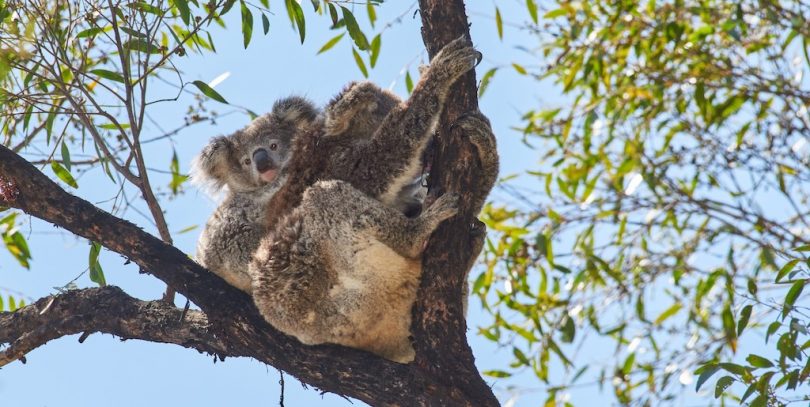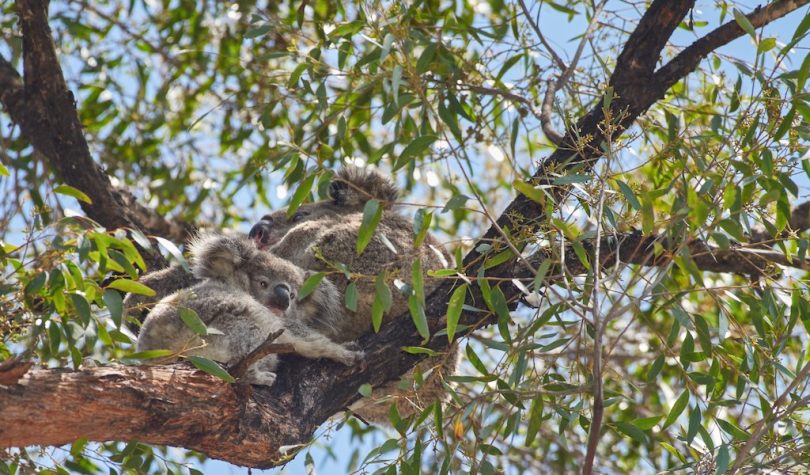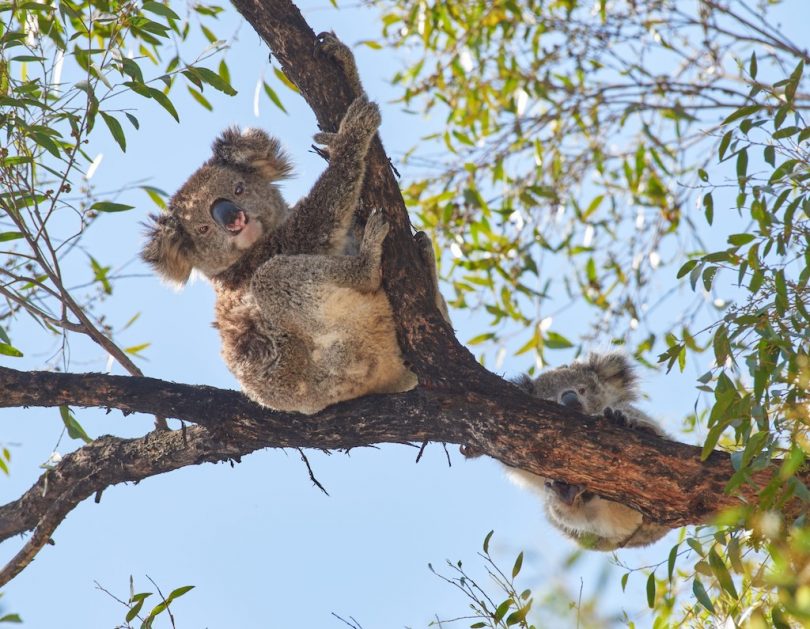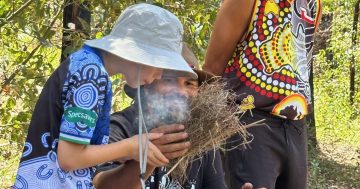
National Parks Association Far South Coast branch president David Gallan took this photo to assess the mother koala’s paw. Photo: David Gallan.
A mother koala and her joey spotted in a stringybark tree on private property in the Murrah Forest on February 10 have stayed put, sparking concerns for their health.
“This is contrary to everything we thought we knew about Far South Coast koalas. They usually change trees two to three times per night to feed,” Chris Allen of the Koala Action Network says.
Found a few kilometres from the Badja Forest firefront active in the nearby Murrah Flora Reserve, Chris and other koala experts have been concerned the koalas could be sick, injured or traumatised.
“We still don’t know for sure how affected by the fire these koalas are. We can see that one of the mother’s paws is very pink, which may be a burn, and she has one milky eye. It’s so unusual for them to be in one place this long, we wonder if she in shock and recovering,” Chris comments.

The joey is at weaning age so experts are wondering if the long stay in one tree is for the purpose of weaning. Photo: Dave Gallan.
Another theory is that the mother is undertaking a natural weaning period which involves a break in the routine of climbing from tree to tree.
The mother has been moving around freely and feeding, while the young joey is very active and eating leaves in the canopy as well as suckling.
The experts have done what they can to assess and help the koalas from the ground, including sending fresh scat to Koala Health Hub to test for chlamydia, which is indicated by milky and weepy eyes and can lead to blindness in the animals.

Sighting these koalas is a positive sign after fire, despite their possible ill-health. Photo: David Gallan.
They have also sent a variety of eucalypt browse up the tree to ensure the koalas have plenty of options for feed.
“We have provided supplementary feed in the form of branches from different species in a sealed tube with water and have seen evidence of them browsing on these leaves,” Chris says.
“Whatever the fate of these two koalas, seeing them post-fires is reassuring.
“A female koala with young has never been observed in the same tree for this long within living memory in this part of NSW. And the fact there’s one female out there who has raised her young through this time of drought and fire gives us cause for optimism.”

“Now, more than ever, we need to protect the trees they live in.” Photo: David Gallan.
The National Parks Association NSW is advocating for the Murrah Flora Reserves to become part of an expanded Biamanga National Park to better protect koalas and other native species, the association’s Far South Coast branch president David Gallan says.
“While the assessment is ongoing about the impact of the mega-fires across our state, it’s reasonable to assume tree-dwelling species that were already vulnerable would be badly affected by the intensity and scale of the fires,” Dave says.
“Before the fires, there were deep concerns about species such as koalas, greater gliders and yellow-bellied gliders. Now, more than ever, we need to protect the trees they live in.”
Dave supports the management of the park in partnership with the Indigenous community.
“The National Parks Association supports the aspirations of the traditional custodians, represented by the Biamanga Board of Management members, to have responsibility for managing this ecologically and culturally significant area in partnership with National Parks,” he says.








